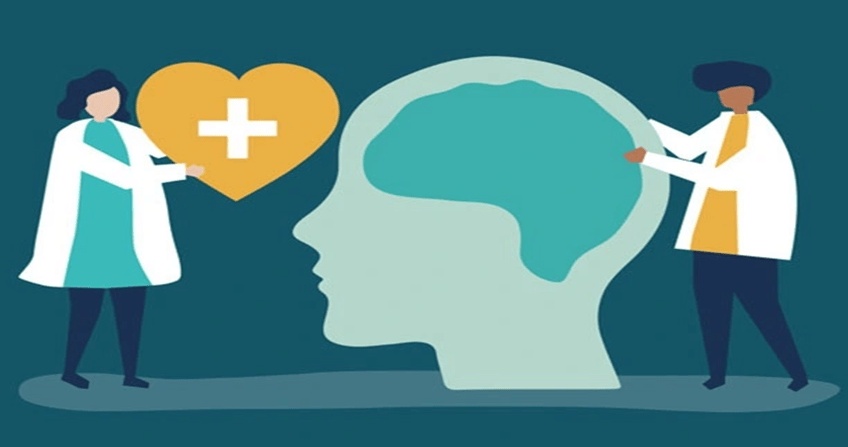Various organizations such as The Pan American Health Organization, the EU Council of Ministers, the Global Federation of Mental Health, and the UK Royal College of Psychiatrists have all agreed with the WHO’s statement that “no health without mental health.” Mental illnesses significantly increase the burden of disease globally. Worldwide, more than 70% of those suffering from mental illness do not receive any care from medical professionals. “Mental illness is like any other medical sickness” is a remark that indicates that mental illness has a biological basis comparable to that of other medical disorders and should be handled similarly in the public eye.
A more cost-effective strategy to improve health and quality of life in this era of obesity and the “metabolic syndrome” is through lifestyle changes. Lifestyle changes might be particularly significant for those who suffer from severe mental illness. Many of these people have a high risk of developing chronic illnesses like diabetes, hyperlipidemia, and cardiovascular disease, which are all linked to sedentary behavior and prescription side effects. Exercise is a crucial part of lifestyle adjustment, but both patients and mental health providers do not fully understand or value exercise. Exercise may be a frequently overlooked strategy in mental health therapy, according to the evidence
Physical activity (PA) may offer therapeutic potential in the therapy of mental health illnesses, according to a substantial and expanding body of data. The following are the health benefits of regular exercise:
- Improved sleep
- Better endurance
- Stress relief
- Improvement in mood
- Increased energy and stamina
- Reduced tiredness that can increase mental alertness
- Weight reduction
- Reduced cholesterol and improved cardiovascular fitness
As a result, patients with severe mental illnesses can receive effective, evidence-based physical exercise therapies from mental health service providers. Precisely defining the neurobiological and behavioral pathways that both exercise and improved mental health share may maximize treatment benefits and customize training regimens for optimal benefit.
Studies show that exercise can treat mild to severe depression just as effectively as antidepressant medication, but without any negative side effects. Exercising regularly can help you avoid relapsing in addition to reducing the symptoms of depression. For several reasons, exercise is a highly effective depression fighter. Most significantly, it encourages a variety of mental changes, including neuronal development, decreased inflammation, and new activity patterns that foster feelings of peace and well-being. It also causes the production of endorphins, potent brain chemicals that lift your mood and make you feel happy. Lastly, exercise can work as a diversion, enabling you to find some quiet time to end the vicious loop of pessimistic thoughts that fuel sadness.
Regular physical activity can still provide a pleasant boost to your mood, outlook, and mental well-being even if you don’t have a mental health condition.
It has been demonstrated that exercise improves our mood. In a study, participants were asked to score their moods before and after periods of physical activity (such as going for a walk or performing chores around the house) and inactivity (e.g. reading a book or watching television). Researchers discovered that after engaging in physical activity, people felt happier, more alert, and calmer than they did following periods of inactivity. They also discovered that when the mood was originally low, physical activity had the biggest impact on it. Several pieces of research examine the effects of physical activity on people’s moods at various levels of intensity. Generally, studies have shown that 30-35 minutes of low-intensity aerobic activity performed 3-5 days a week for 10-12 weeks was the most effective at increasing positive moods. Being out of doors is a prime time for boosting your activity levels.
Research suggests that doing physical activity in an outdoor, ‘green’ environment has greater positive effects on well-being than indoors. Making small changes, from leaving the car at home for short journeys or getting off the bus a stop earlier, to higher-intensity activities like joining in with your children’s football game or jogging with the dog, can help to boost your mood.
The state of one’s mental health may deteriorate as a result of exercise. Some people can develop an unhealthy dependence on exercise and physical activity. Abuse of exercise can harm physical health and cause psychological issues. Exercise can result in either beneficial or detrimental changes in mental health, and the outcome appears to be largely dependent on the ‘dosage’ employed.
Although it long has been recognized that individuals with good health habits, including regular exercise, also have good mental health, the science of using exercise to prevent and treat mental disorders is relatively new.
Hence, any exercise is better than none. Going for a leisurely walk, or activities like stretching and yoga can also have huge benefits on the mind and body as well.
Written By:
Dr. Shweta Sharma
Assistant Professor
Faculty of Physiotherapy
SGT University Gurugram




